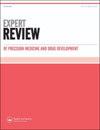加速精准眼科:最新进展
IF 1.2
Q4 PHARMACOLOGY & PHARMACY
Expert Review of Precision Medicine and Drug Development
Pub Date : 2022-01-02
DOI:10.1080/23808993.2022.2154146
引用次数: 0
摘要
眼科的未来是精准医学。随着糖尿病视网膜病变等生活方式相关眼科疾病的发病率不断上升,技术的使用有可能减轻临床专家的负担。精准医学的进步将有助于改善诊断,更好地将临床需求较高的患者分诊给合适的专家,并提供一种更有针对性的治疗方法,有助于改变患者管理。涵盖的领域使用OVID Medline和PubMed数据库进行了详细的文献综述,以探索视网膜疾病、青光眼、角膜、白内障和葡萄膜炎领域的精准医学进展。在过去的三年中【2019-2022】进行了探索,特别是讨论了这些领域在筛查、诊断和管理方面的技术和基因组进步。专家意见人工智能及其子专业深度学习为眼科疾病的诊断和管理提供了最实质性的方法,可以在精准医学的前沿领域得到进一步发展。未来的挑战包括优化算法训练集,以及在更专业的领域进一步发展药物遗传学。本文章由计算机程序翻译,如有差异,请以英文原文为准。
Accelerating precision ophthalmology: recent advances
ABSTRACT Introduction The future of ophthalmology is precision medicine. With a growing incidence of lifestyle-associated ophthalmic disease such as diabetic retinopathy, the use of technology has the potential to overcome the burden on clinical specialists. Advances in precision medicine will help improve diagnosis and better triage those with higher clinical need to the appropriate experts, as well as providing a more tailored approach to treatment that could help transform patient management. Areas covered A detailed literature review was conducted using OVID Medline and PubMed databases to explore advances in precision medicine within the areas of retinal disease, glaucoma, cornea, cataracts and uveitis. Over the last three years [2019 – 2022] are explored, particularly discussing technological and genomic advances in screening, diagnosis, and management within these fields. Expert opinion Artificial intelligence and its subspecialty deep learning provide the most substantial ways in which diagnosis and management of ocular diseases can be further developed within the advancing field of precision medicine. Future challenges include optimal training sets for algorithms and further developing pharmacogenetics in more specialized areas.
求助全文
通过发布文献求助,成功后即可免费获取论文全文。
去求助
来源期刊

Expert Review of Precision Medicine and Drug Development
PHARMACOLOGY & PHARMACY-
CiteScore
2.30
自引率
0.00%
发文量
9
期刊介绍:
Expert Review of Precision Medicine and Drug Development publishes primarily review articles covering the development and clinical application of medicine to be used in a personalized therapy setting; in addition, the journal also publishes original research and commentary-style articles. In an era where medicine is recognizing that a one-size-fits-all approach is not always appropriate, it has become necessary to identify patients responsive to treatments and treat patient populations using a tailored approach. Areas covered include: Development and application of drugs targeted to specific genotypes and populations, as well as advanced diagnostic technologies and significant biomarkers that aid in this. Clinical trials and case studies within personalized therapy and drug development. Screening, prediction and prevention of disease, prediction of adverse events, treatment monitoring, effects of metabolomics and microbiomics on treatment. Secondary population research, genome-wide association studies, disease–gene association studies, personal genome technologies. Ethical and cost–benefit issues, the impact to healthcare and business infrastructure, and regulatory issues.
 求助内容:
求助内容: 应助结果提醒方式:
应助结果提醒方式:


